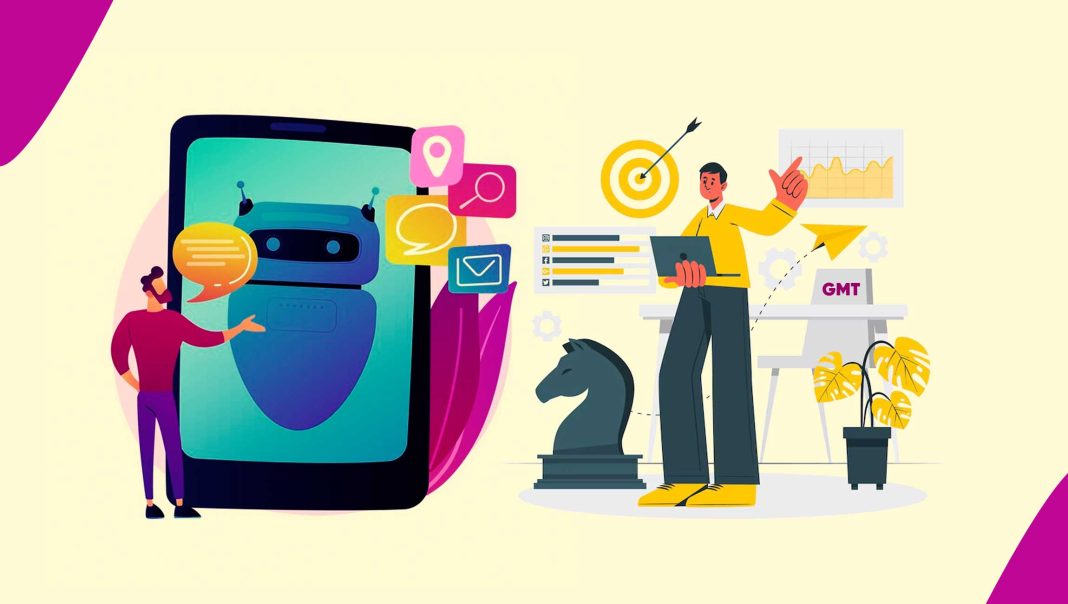In the rapidly evolving digital age, Go-to-Market (GTM) strategies are undergoing a significant transformation. As brands strive to navigate the complexities of the modern market, the integration of artificial intelligence and machine learning tools has become increasingly pivotal. Enter ChatGPT, an avant-garde tool that is reshaping the approach to GTM strategies. Developed by OpenAI, ChatGPT stands at the forefront of this technological revolution, offering novel ways for brands to engage with their markets.
Recently, there has been a noticeable surge in interest from leading brands in leveraging ChatGPT. They are exploring its potential to enhance customer engagement, streamline operations, and provide insights that traditional methods might overlook. This trend marks a significant shift in how companies strategize their market approach, emphasizing the growing importance of AI-driven tools in crafting successful GTM plans.
Understanding ChatGPT and Its Capabilities
ChatGPT, a variant of the GPT (Generative Pre-trained Transformer) model, is an AI-driven tool designed to understand and generate human-like text. It operates on a sophisticated algorithm developed by OpenAI, which allows it to process and respond to text inputs with remarkable accuracy and relevance. At its core, ChatGPT uses natural language processing (NLP), enabling it to interpret and generate responses that mimic human conversation. This feature is critical for brands looking to automate and personalize customer interactions.
The key features of ChatGPT include advanced learning capabilities, adaptability, and the ability to process large volumes of data swiftly. It can learn from interactions, adapting its responses based on the context and nuances of the conversation. This adaptability makes ChatGPT a valuable tool in developing GTM strategies, as it can analyze market trends, customer feedback, and competitor activities to provide actionable insights.
Moreover, ChatGPT’s ability to generate creative and informative content makes it an asset in content marketing, a crucial element of GTM strategies. It can assist in creating targeted marketing messages, writing product descriptions, and even drafting informative articles, all of which can engage customers and enhance brand visibility. The integration of ChatGPT into GTM strategies offers a blend of efficiency, personalization, and innovation, enabling brands to stay ahead in a competitive digital landscape.
What Leading Brands Are Doing Off-Late?
Leading brands across various industries are rapidly integrating ChatGPT into their Go-to-Market (GTM) strategies, showcasing its versatility and efficacy. But as these details have not been publicized by these brands, let’s have a look at how different sectors are leveraging ChatGPT for their benefit:
1. Retail Brands:
Major retail chains are using ChatGPT to enhance their online customer service. By integrating ChatGPT with their chatbot systems, they have improved response times and offer more personalized customer interactions, leading to increased customer satisfaction and sales.
2. Technology Companies:
Global tech firms are employing ChatGPT to gather and analyze customer feedback on social media and forums. This helps them quickly identify user needs and preferences. Thus enabling them to tailor their product development and marketing strategies more effectively.
3. Content Creation and Media:
Media and content creation companies are utilizing ChatGPT to assist in generating article ideas, drafting content, and even creating scripts for videos, leading to more efficient content production processes.
4. Financial Services Providers:
In the financial sector, companies are using ChatGPT to analyze customer data to predict financial trends and advise clients on investment strategies, thereby enhancing their customer service and advisory roles.
5. Healthcare Providers:
Healthcare providers are integrating ChatGPT to manage patient inquiries, using it to provide general health information or assist in scheduling appointments, thereby improving patient engagement and operational efficiency.
6. Automotive Companies:
Automotive companies are using ChatGPT to create dynamic and engaging marketing content for new car models, leveraging AI’s capabilities to produce creative and targeted ad campaigns.
Challenges and Considerations in Implementing ChatGPT for GTM
Implementing ChatGPT in Go-to-Market (GTM) strategies offers exciting opportunities, but it also presents distinct challenges and considerations. Addressing these effectively is key to leveraging ChatGPT’s full potential.
Challenges and Mitigation Strategies
- Data Privacy Concerns:
- Challenge: Ensuring compliance with data protection laws like GDPR and CCPA.
- Mitigation: Establish robust data governance policies to safeguard customer information.
- Need for Customization:
- Challenge: Aligning ChatGPT with a brand’s specific needs and voice.
- Mitigation: Invest in fine-tuning and continuous learning inputs for tailored responses.
- Integration with Existing Systems:
- Challenge: Seamlessly integrating ChatGPT with current technological infrastructure.
- Mitigation: Seek technical expertise and strategic planning for smooth integration.
Key Considerations for Effective Use
- Align with Business Goals: Define clear objectives for ChatGPT, such as enhancing customer engagement or aiding in content creation.
- Ethical Use: Prioritize ethical considerations to avoid bias and respect customer privacy in AI applications.
Conclusion
We have explored the transformative potential of ChatGPT in reshaping Go-to-Market strategies. Despite the challenges of data privacy, the need for customization, and integration complexities, the benefits are clear. ChatGPT offers unparalleled insights and efficiencies in customer engagement and market analysis. As we look forward, the role of AI tools like ChatGPT in marketing and business strategy is poised to grow, heralding a new era of AI-enhanced business practices.






